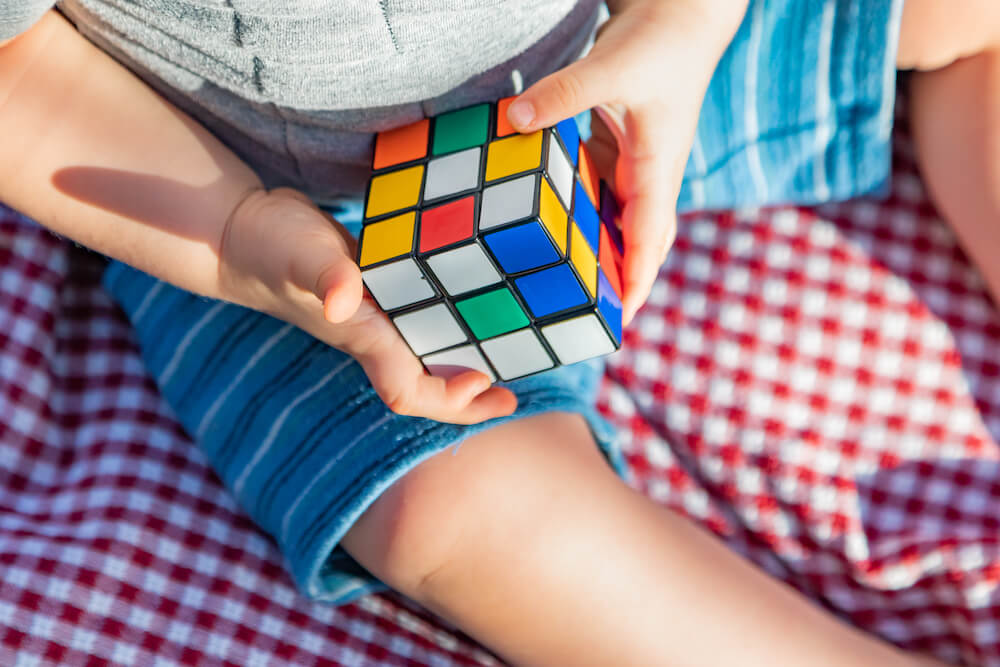In the process of raising and educating our children, it is critical to recognize that each child has unique abilities and talents. Howard Gardner, renowned psychologist, proposed the theory of multiple intelligences, which shows us that intelligence goes beyond IQ and manifests itself in different ways.
In this article, we’ll explore Howard Gardner’s multiple intelligences theory, understand how they apply to early childhood development, and discover ways to encourage them in children.
What are Howard Gardner’s multiple intelligences?
According to Gardner’s theory of multiple intelligences, each person has different forms of intelligence to varying degrees. In his book “Frames of Mind”, from 1983, Gardner initially described four intelligences, and five other intelligences were later identified both by the psychologist and by other theorists. Which means there are a total of nine intelligences currently recognized in the field of education.
They are: linguistic, logical-mathematical, spatial, corporal-kinesthetic, musical, interpersonal, intrapersonal, naturalistic and existential.
- Linguistic intelligence refers to the ability to use language effectively, understanding and expressing ideas.
- Logical-mathematical intelligence involves logical reasoning, solving mathematical problems and understanding patterns.
- Spatial intelligence concerns the ability to visualize and manipulate objects in three-dimensional spaces.
- Bodily-kinesthetic intelligence is related to motor coordination and the ability to use the body skillfully.
- Musical intelligence manifests itself in the appreciation and creation of music, as well as the recognition of sound patterns.
- Interpersonal intelligence involves the ability to relate to other people empathetically and effectively.
- Intrapersonal intelligence concerns self-awareness, including understanding personal emotions and desires.
- Naturalistic intelligence is related to the observation and classification of the natural environment.
- Existential intelligence involves the ability to reflect and ponder the meaning of life and individual purpose.
How to encourage multiple intelligences in early childhood?
Now that we understand the different intelligences, let’s explore some strategies to encourage them in your child’s development:
Promote reading and writing
Foster linguistic intelligence by reading stories to your child, encouraging verbal comprehension and expression. Provide age-appropriate writing materials such as pencils, paper, and books to develop their writing skills.
Play with logic games
Puzzle games, riddles and strategy games are great ways to develop logical-mathematical intelligence. These activities challenge thinking and encourage problem solving.
Explore art and creativity
Provide opportunities for your child to develop spatial and body-kinesthetic intelligence. Let them experiment with painting, sculpture, and activities that involve movement such as dance and theater.
Stimulate interest in music
Play different musical styles at home, sing and dance along with your child. Musical toys and music lessons can help develop musical intelligence. By the way, at Kinedu, you have access to music classes for babies and children. Download the app here to join them!
Promote social interactions
Encourage your child to participate in group activities such as sports or community projects. This will help with the development of interpersonal intelligence, allowing them to learn to relate and collaborate with other children.
Cultivate emotional awareness
Help your child identify and express their emotions. Talk about their feelings and teach strategies to deal with different situations. This will contribute to the development of their intrapersonal intelligence.
Explore nature
Encourage your child to observe and explore the natural world. Take walks outside, take care of a garden or create a small green space at home. These experiences will help in the development of naturalistic intelligence.
Promote questions and discussions
From an early age, encourage your child to ask questions and express their ideas. Answer these questions in an age-appropriate way and promote open discussions on different topics. Encourage them to share their thoughts and opinions, even if they are simple or imaginative. This will help in the development of existential intelligence.
By recognizing and nurturing the multiple intelligences in your child’s development, you are providing a solid foundation for your child’s global growth. Remember that each child is unique and may have strong skills in one or more areas. By providing an environment rich in opportunities to explore and develop these skills, you are helping your child’s full potential to flourish.
Keep exploring Gardner’s multiple intelligences, learning from expert books and trusted resources like the Kinedu app, which includes articles, activities and interactive play sessions led by early childhood experts. With this knowledge, you will be prepared to support and encourage your child’s balanced and diverse development from an early age. Together you will embark on a wonderful journey of discovery and growth!








